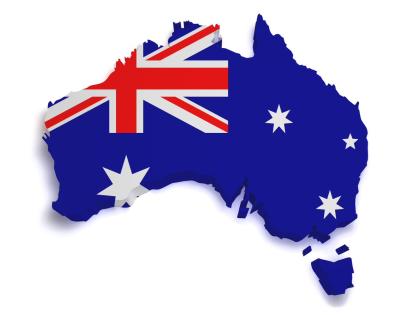“No Worries” Exporting to Australia
International Trade and
Investment Commercial Specialist
U.S. Commercial Service / Canberra
While Australia and the United States have a lot in common, including a stable political and economic environment, a well-developed legal system, and a strong economic friendship, before jumping into the Australian market, there are a few differences in business culture that American exporters should keep in mind about this distant land down under.
It is often said that Australians are very informal and will cut to the chase in a business discussion. If you ask a direct question, you will most likely get a direct answer. However, you also need to keep a light, informal side to the discussion. First names are the way to go. “Hello, Dave / Good morning or afternoon.” Dave is fine. But don’t dive in with “G’day Mate!” It can come across a bit contrived, and given the different accent, it is always best if the Aussie says this…or says, “G’day Jack.” Give yourself a little time to establish initial credibility.
If there is an opening for a quick joke/humorous remark, take it. Americans can sometimes be perceived as focusing exclusively on the bottom line, and that could be a turn-off in Australia. Keep it relaxed.
Is it ok to drink alcohol at a business lunch or dinner? Absolutely! It’s not mandatory, but it is definitely ok. Drinking too much however is not ok. A good rule of thumb – one or two is fine, but no more, especially if you are driving. Australia has random roadside breath testing and you do not want to be fined for drunk driving.
When ordering beer, don’t ask for Fosters. Unless you can see it, be aware that the brand mostly disappeared decades ago, and that craft beers and other brands dominate these days. Ask the bar staff for their suggestion (e.g., “I’d like a pale ale, what do you suggest?”).
If you’re having coffee with a client, don’t feel obliged to order a flat white. Australians generally don’t drink them. A cappuccino or skim cappuccino – a skim cap – is much more common. Just remember that Aussies have more of a European coffee culture, and take advantage of the opportunity to sit and chat over that coffee. Aussies are also coffee snobs. Be prepared to hear they drink the best coffee in the world – it is probably true, especially in Melbourne.
You can take a rideshare or taxi in most locations. Taxis are probably more widely used than in the U.S. and generally, it is ok to sit up front with the driver. It also makes it easier to talk to them and enjoy your trip. It is amazing how much you can find out about any town just by making small talk with your driver. Aussies do NOT tip. There will be some who do, but it goes against Australian customs. The wait staff is well-paid on an hourly rate that generally increases to time and a half on a Saturday and double on a Sunday. A genuine “thank you” when meals and drinks arrive is fine. If the bill suggests a tip, don’t fall for it. It is ultimately your decision, but Aussies generally don’t tip. No need for it.
Aussies swear a lot… a lot. Generally, without even noticing it themselves. It can get bloody embarrassing. “Very” is a much under-used whereas the great Australian adjective “bloody” has nothing to do with blood but is used for emphasis. The most famous sign in rural Australia is ‘shut the bloody gate.’ It conveys emphasis and was once important because many rural roads used to require opening and closing gates and cattle and sheep could wander off if the gate was not closed after you.
Aussies like to use slang terms and abbreviations. Use “Uni” rather than university. “Arvo” rather than this afternoon. If you are at a bar and somebody says, “It’s your shout,” don’t yell out. They mean it’s your turn to buy the next round of drinks. You can always get in first and suggest it’s your shout, “I’ll shout this round,” which will make you instantly popular.
You may also hear strange expressions like… “flat out like a lizard drinking (very busy)” – “Mad as a cut snake” (very upset). “Got the rough end of the pineapple” (I got a raw deal) and many, many more. “Don’t come the raw prawn with me” for example means “Don’t try to deceive me.”
Sport is a very popular topic of discussion, but not as most Americans would recognize. If you want to mention football, NFL will be met with a blank stare. If you are in Melbourne or Adelaide, it is all about which Australian Rules team you follow. If in Sydney or Brisbane, it is about which Rugby League side you follow. If you get a chance to attend a game, do it and preferably with a client. Is there a sporting rivalry with the U.S.? Oh yes, in the pool. And an emerging one in basketball.
Topics to avoid…the traditional ones, but seriously, you can of course mention them in conversation – Aussies talk about anything and everything – just be prepared for some very different opinions on all of the above.
There are SIX states in Australia, not 50. And it is quite possible Aussies know very little at all about your home U.S. state or where it is. It is probably good to familiarize yourself with a map of Australia before you arrive in the country; the fact that Australia is roughly the same size as the continental U.S.; and to avoid mispronouncing Melbourne, Brisbane, Canberra, and Cairns or risk losing all credibility. And for your reference, they sound like Mell.b’n, Briz.b’n, Can.brah and Care.ns.
The differences between doing business in the US and Australia are minor and subtle, and to do business in Australia is to do business with a friend or “mate.” That might be partly why one of the United States’ largest trade surpluses is with Australia which has had a Free Trade Agreement in place since 2005. This is a market that values U.S. products and solutions. Australia has been selected for the Rural Export Center’s Country Report by 10 different exporters, which is second only to Mexico. So, it has never been any secret that Australia is a potentially strong market for American exporters. So, look across the pond to Australia, a great neighbor that just happens to be located down under.
For more information on business opportunities “Down Under,” contact your local U.S. Commercial Service office or the Rural Export Center, and we will connect you with the right people at the U.S. Commercial Service / Australia!

